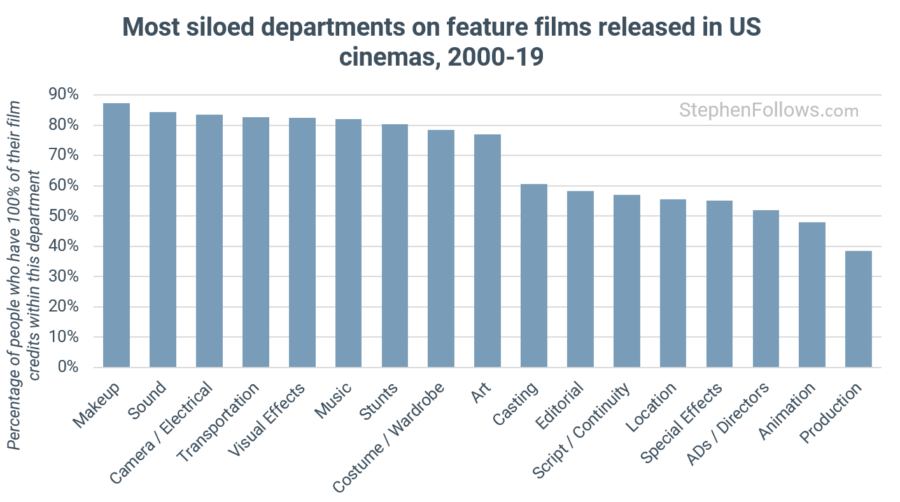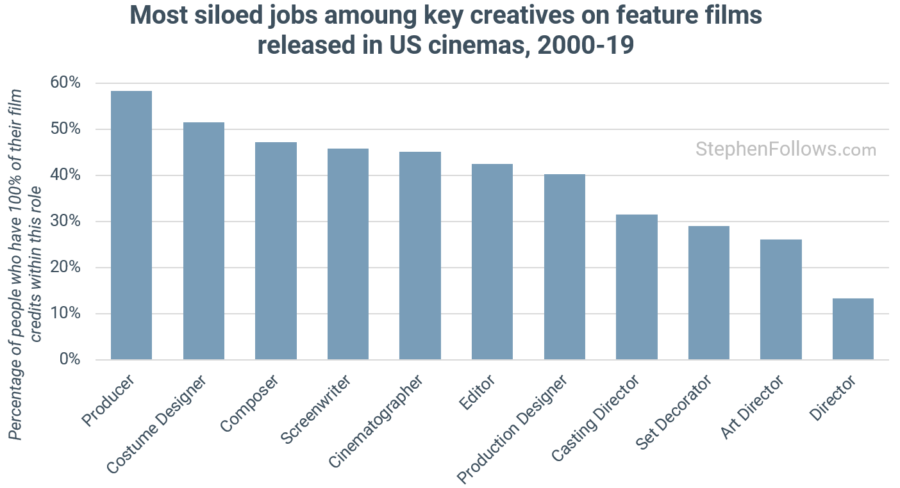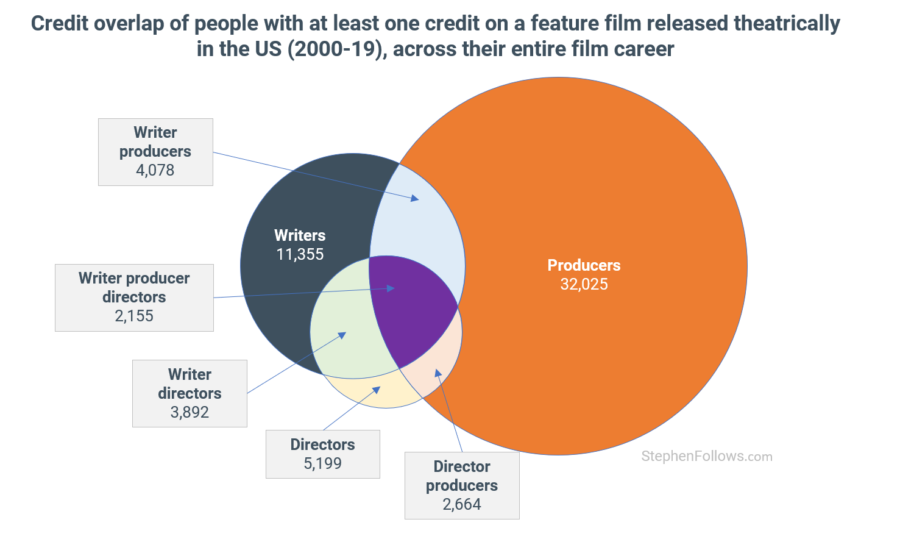The average film crew will contain a wide variety of people and span a huge number of skillsets. It could include chefs and chauffeurs, grips and greensmen, producers and publicists, make-up artists and motion control technicians, and many more.
They work together on the film, often side-by-side on-set, but each person has their own career journey. Hiring practices can differ wildly between departments, as can their likelihood of building a sustainable career in film.
In the past I have look at the crossover between certain film jobs, so today I want to look at the inverse – which roles are most often siloed? By “siloed”, I mean that all their film credits are within one department, even if they move up the ranks from junior to senior roles.
To answer this question, I looked at the movie careers of 507,516 people who had at least one crew credit on a movie released in US cinemas between 2000 and 2019. There is more detail on my criteria and methodology at the end of the article.
Let’s start by looking at the different departments and then move onto to individual creative roles.
Isolated departments
For each of the half-million people I researched, I noted whether or not all of their credits were all within one department. This allowed me to track what percentage of people within any given department had spent their entire film careers in just that department.
87% of the people who have ever received a film credit in Make-up related jobs have never worked in another film department. Followed close behind by those working in Sound (84%), Camera (83%) and Transportation (83%) departments.
At the other end of spectrum, the Production department has the lowest silo rate, with just 39% of people working exclusively within Production across their film careers.

Siloed creatives
Moving on to the key creative roles, we see an interesting flip, in which Producers are the least likely to be credited in other creative roles. 58% of Producers never receive a film credit in another role. Similarly siloed creative jobs include Costume Designer (52%), Composer (47%) and Screenwriters (46%).
Only 13% of of Directors exclusively work as a director throughout their film careers. Put another way, almost nine out of every ten directors have worked in another key creative role on a movie.

This is born out in previous research I carried out into the overlap of key roles. You can read the full piece here but I thought it would be useful to include the pie chart below, highlighting the extent to which directors frequently also take on the roles of Screenwriter and Producer.

Notes
Today’s research looks at the movie credits of people who had at least one crew credit in a movie released theatrically in North America between 1st January 2000 and 31st December 2019. Once I had my list of people, I went back and looked at all their movie credits, even those released before 2000, in order to ensure I was assessing their career to date.
Raw credit data came from a number of public sources, including IMDB, Wikipedia and Movie Insider. This does not take into account work in other mediums, such as TV, music videos, online videos, etc. This research treats all credits the same as it cannot take account of the length of time worked, seniority, the amount paid, etc. Given the unbalanced nature of the industry, it’s certainly possible to be successful in ways that do not show up in simple credits counts. These include being the writer of unproduced (but optioned) scripts, being hired infrequently but paid handsomely, uncredited work, etc.





Comments
At least make-up people get to meet other people and actors in particular. If you are working in sound, you can actually end up meeting nobody as much of the work comes to you online and/or via a telephone call.
Man they ought to make movies on these sound guys-its such a fascinating department. It could be any genre-dark comedy, thriller, heck even horror. The protagonist sound guy can be fictionalised really well.
Watch Peter Strickland’s Berberian Sound Studio is about a sound guy remixing an Italian horror film.
Andrew Graeme > By working in sound you meet pretty much everybody on set, especially actors! What do you mean?
@Carl: I think Andrew is referring to post-production sound as opposed to location sound. Two very different jobs.